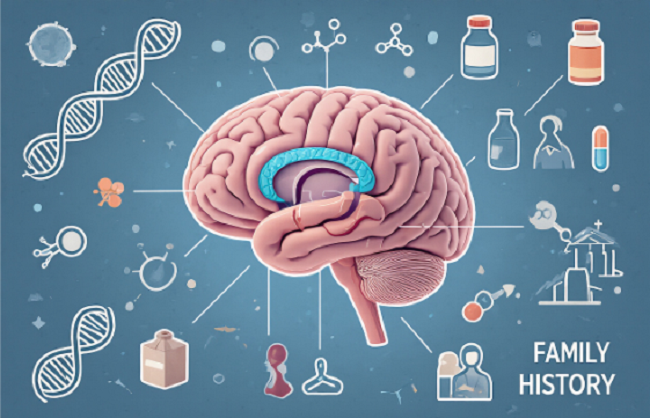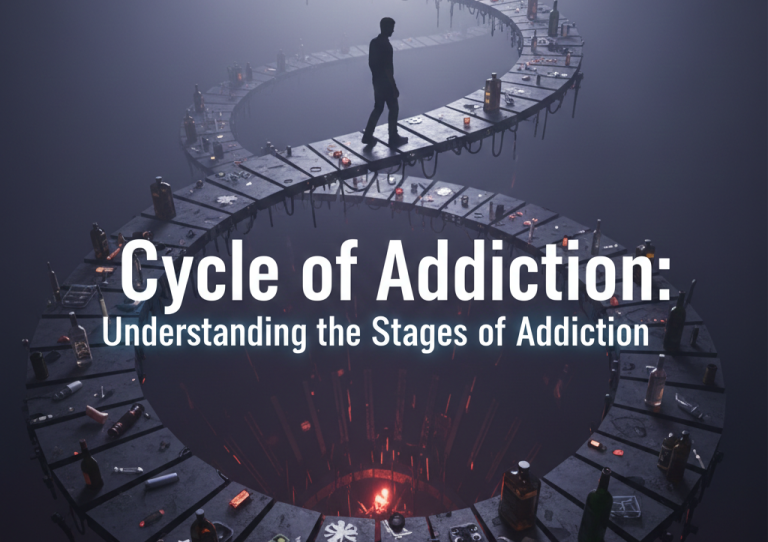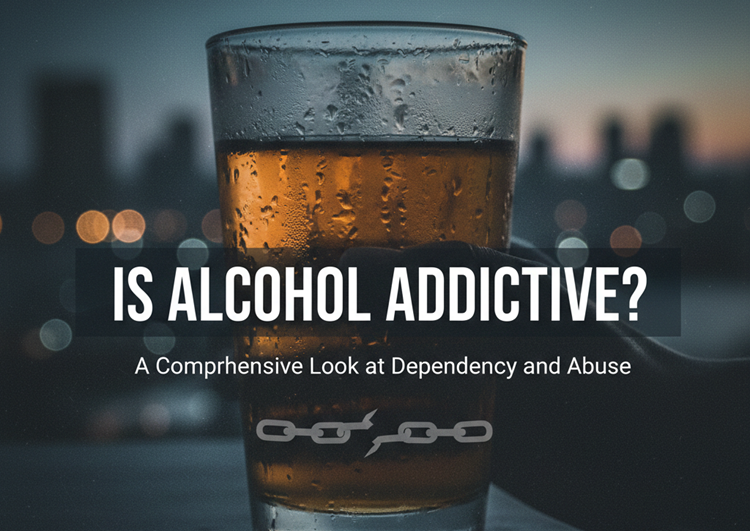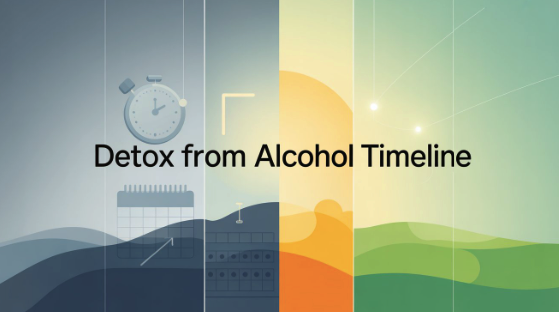Psychotic disorders are severe mental illnesses that influence the brain’s processing of reality. People diagnosed with these disorders can have hallucinations, delusions, and unorganized thoughts.
The psychotic disorders have a prevalence of approximately 3 percent, and they change the way affected individuals perceive the environment and interact. Such conditions develop a gap between reality and mind through the use of hallucinations, delusions and confusion of mind.
In this book, we are going to summarize all you need to know about psychotic disorders, how to detect early signs, and how to continue getting successful treatment. Nothing like medical lingo, plain words.
Our goal at Orlando Treatment Solutions is to provide evidence-based treatment in a compassionate way that enables people to take charge of their lives.
What is a Psychotic Disorder
Definition and key characteristics
Psychotic disorders are not only movie devices of thriller films. They are serious mental illnesses which severely transform the perception of reality by an individual.
Psychotic disorders are at their basis characterized by a disconnection from reality. Individuals develop hallucinations (seeing, hearing or sensing what is not there) or delusions (inflexible false beliefs). Consider the voices inside your head that make no sense to any other people or the fact that you feel you are being watched by the FBI.
The kind of situation that makes these disorders difficult is that the affected individual usually cannot realize that their perceptions are not real. The problem is that their brain is just playing with them but it seems so real, 100 percent.
How psychotic disorders differ from other mental health conditions
What is the difference? Reality testing.
Most mental health issues such as depression or anxiety, do not really change your grasp of what is real. You may feel dreadful but you are still in the same ground-level reality as everyone.
In psychotic conditions, the common reality breaks apart. Your brain forms experiences, which are so real that they are only figments of your imagination.
Another point that makes a difference is the nature of symptoms. Whereas depression is characterized by incessant dejection and anxiety is characterized by unwarranted anxiety, psychotic disorders are characterized by:
- Hallucinations
- Delusions
- Disorganized thinking
- Abnormal motor behavior
- Negative symptoms (reduction of expression of feelings, the absence of drive)
Types of Psychotic Disorders
Is schizophrenia a psychotic disorder
The term psychosis brings to mind the idea of schizophrenia in the minds of many people. And there is a reason why so. Schizophrenia is a disorder, that influences approximately 1 out of every 100 people across the world and it mostly develops during maturity.
The most notable thing about schizophrenia is that it combines both positive symptoms (additions to normal) such as hallucinations and delusions with negative symptoms (removals) such as flat affect and social withdrawal. It is common with schizophrenia patients that they can hear auditory hallucinations, that are not present or at least they believe they are.
The reality? Schizophrenia is not like a split personality as movies would portray. It is a complicated brain condition that has to be treated continuously.
Schizoaffective disorder: when mood and psychosis combine
Schizoaffective disorder is the in-between state of schizophrenia and mood disorders. Individuals who have this condition develop both psychotic symptoms and also severe mood spells.
The problem is timing. In schizoaffective disorder, psychotic features are present at the level of mood states and in remission. What may want to occur when a person is depressed is that they may have some delusions, and the fact that the depression goes away does not make these delusions disappear.
Therapy is generally approached in two ways: by addressing two sides of the condition at once.
Brief psychotic disorder: short-term episodes
There are times when the psychosis can come crashing through like a summer storm-sharp and fast. Brief psychotic disorder refers to the acute psychotic symptoms with their duration varying between one day and one month after the symptoms are completely recovered.
They are the episodes that many times are often followed by extreme stress such as:
- Loss of a loved person
- Natural disasters
- Traumatic events
- Transitional phases in life
The good news is? When experiencing the passage of the episode, people are likely to resume the same level of functioning as before it.
Delusional disorder: fixed false beliefs
Think about how hard it would be to have the gut feeling that your significant other is cheating, even when you get no confirmation of it. And that is what delusional disorder is in a nutshell fixed, untrue beliefs that the person holds despite any logic being against it.
As opposed to other psychotic disorders, those with delusional disorder can perform typically in other areas not related to their particular delusion. Comic themes used in them are:
- Paranoid (Someone is getting them)
- Paranoid (unfaithfulness of the partner)
- Grandiose (special powers or connections)
- Somatic (physical illnesses)
Their ideologies are not unrealistic at all but rather not utterly unimaginable and that makes it quite hard to dispute them.
Substance-induced psychotic disorder
Some substances are capable of causing psychosis which is extremely similar to primary psychotic disorders. The difference is the key? These symptoms develop as one takes drugs or when one withdraws.
The usual suspects are:
- Alcohol (withdrawal in particular)
- Cocaine and methamphetamine are stimulating drugs.
- Such drugs as LSD are hallucinogens.
- The use of cannabis (especially cannabis of high potency)
- There are prescription drugs
Whereas symptoms usually disappear after the substance is removed in the system, there may be a reoccurring incidence that may expose the individual to the occurrence of a primary psychotic disorder at a later time.
Psychotic disorder vs Psychosis
Psychosis is the symptom associated with psychotic disorders as the large set of mental illnesses patients are psychotic. Psychosis can be defined as the situation in which an individual loses connection with the real world developing such symptoms as hallucinations or even delusions. Disorders or diseases like psychosis include schizophrenia which is an illness characterized by psychosis.
This can be split up a bit further:
Psychosis:
- Definition:
- A psychological condition in which the individual is not able to recognize what is in reality and what is not.
- Symptoms:
- Hallucinations (seeing and hearing things that do not exist), delusions (illusions), disorganized thoughts and speech, and unusual behavior.
- No disease as such:
- Psychosis is one of the symptoms, which may have numerous causes, among which are mental illnesses, substance abuse, or any other health conditions.
- It is temporary:
- Psychotic episodes may be acute (such as in brief psychotic disorder) or a chronic part of a more protracted condition.
Psychotic Disorders:
- Definition:
- A collection of mental disorders that are characterized by psychosis that is persistent and significant.
- Examples:
- Schizophrenia, schizoaffective disorder, schizophreniform disorder and delusional disorder.
- Cause:
- It is known that the causes of psychotic disorders are not completely certain yet but they are presupposed to be combinations of genetic, biological, and environmental ones.
- Require treatment:
- Psychotic disorders that affect people usually necessitate continued treatment, either involving medication, therapies, or any other form of support.
100% Confidential Support is Available 24/7
No matter what you’re going through, you’re not alone. Our dedicated team is here to provide a safe, judgment-free space where you can talk openly and honestly. Whether you need emotional support, resources, or just someone to listen.
We’re here for you—completely confidential and always respectful of your privacy. Call us today!
Psychotic Disorder Symptoms
Positive symptoms: hallucinations and delusions
Have you ever got the feeling that you were being watched? It goes away, in most of our cases. However, in case of a person with psychosis, that sensation can then become a matter of absolute conviction–even when no one is around.
Hallucinations refer to the senses that are not real. They may not touch any one of these senses:
- Auditory: The most prevalent ones are hearing voices. These voices may criticize the actions of the person, command the persons or even disagree with one another.
- Visual: These could include seeing things, individuals, or designs, which do not exist.
- Tactile: Having skin reactions that feel like crawling insects.
- Olfactory/ Gustatory: perceiving things that are not present through smell or taste.
Delusions are aspects of false beliefs that remain even when confronted with evidence that should dispel them. The most common ones are:
- Persecutory: I am being hunted by the government by monitoring my thoughts with the fillings in my teeth.
- Referential: “The newsreader of the TV is texting me personal messages.”
- Grandiose: “I do possess some special attributes, which can control the weather.”
So what could be difficult about these symptoms? The victim feels that they are one hundred percent real. When you say to a person that his hallucinations do not exist it is the same as saying to you that the chair which you are sitting on does not exist.
Negative symptoms: emotional flatness and social withdrawal
Negative symptoms have nothing to do with stuff you put there, out-of-this-world experiences; they are the stuff you remove.
Just consider when was the last time you felt your stomach in knots and you could not stop laughing, or you get that butterfly feeling before a date. And now, just imagine that those feelings went away.
The negative symptoms are chiefly:
- Flat affect: Narrow use of facial expressions, monotonous voice, less use of gestures
- Anhedonia: The failure to experience enjoyment about the activities that used to be pleasurable They may report that they do not feel pleasure about the activities that they used to enjoy.
- Avolition: Extreme anti-motivation to do anything including minimal self-care
- Alogia: glanced talk, with brief worthless answers
- Social withdrawal: Distancing themselves of friendship and family
These are the symptoms that go under the radar and may be very devastating. Hallucinations may be more dramatic looking, but it is those negative symptoms that usually destroy the social life of a person and his or her ability to live independently.
Negative symptoms may also be confused as laziness or boredom to a person with negative symptoms. The reality? They do not have the normal emotional and motivational reactions that we assume of them.
Cognitive symptoms: thought disorders and disorganized thinking
Just think of a person trying to file a cabinet and now and again, the files are shuffled. The cognitive symptoms are experienced like that.
Cognitive symptoms influence how the person thinks and structures their thoughts:
- Disorganized thinking: Thought process jumps around and talks about different things (flight of ideas)
- Loose associations: That is, linking mistakenly interconnected ideas
- Word salad: There is a garbling of speech.
- Thought blocking: Abruptly halting in the middle of the sentence, not being able to proceed
- Poor concentration: Unable to concentrate even on simple things
- Memory issues: difficulty retrieving information or using conversations Memory problems:, difficulty retrieving information or using conversations
These symptoms render daily activities extremely difficult. It is tiresome trying to communicate to the person when you are not able to organize your mind.
The mental symptoms tend to cause dramatic changes in work ability and schoolwork. Even simple things such as grocery shopping work because you have no idea how to think about the things that you require.
Early warning signs to watch for
The psychosis does not come over night. There is always something wrong and what people often undergo are warning signs which months or sometimes even years before the full blow of psychosis develops.
The results may be drastically opposite with timely treatment and it is notable to be aware of such signs:
- Sleep problems: Extreme shifts in the sleeping pattern
- Social withdrawal: Socialization: The impact of isolation: Isolation: The act of gradually and increasingly growing lonely
- Poor performance: school and work performances start dropping without any visible cause
- Weird thoughts: Growth of distrust or with ideas that are obsessing
- Problems with thinking: the inability to concentrate, to follow discussions
- Emotional changes: Replacement of emotional response to things or sudden change of mood
- Abnormal to lights, sounds or touch: sensory
- Self-neglect: Low personal care Self-neglect: Low personal care
The sleep problems are only some of the things people experience occasionally, and they are not symptoms of psychosis. It is the fashion and the power.
This is an occurrence that happens at a phase known as the prodromal stage. This means that psychosis may be spotted at this stage and prevent out-and-out cases or reduce the occurrence to its minimum.
Orlando Treatment Solutions
Battling with Drug and Alcohol Addition? Remember, you are not alone and we are here to help you!
Root Causes and Risk Factors
- Genetic Factors: There is an increased risk in case the patient has a family history of psychosis.
- Brain Chemistry: Imbalances of chemicals such as dopamine.
- Trauma or Stress: Trauma such as psychosis, emotional abuse, or too much stress can cause psychosis.
- Medical Conditions: Psychosis can be caused by infections, epilepsy or tumors in the brain.
- Substance Use: The symptoms may be caused or exacerbated by drugs such as LSD, meth, or alcohol.

Effective Psychotic Disorder Treatment Approaches
An effective approach in the treatment of the psychotic illnesses should be long-term. The Orlando Treatment Solutions focuses on treatments that are unique and target the causes.
Medication Management
Medications are antipsychotic agents and aid in balancing brain chemistry and the elimination of hallucinations and delusions.
Cognitive Behavioral Therapy (CBT)
CBT assists the clients in harnessing and disputing distorted thought patterns.
Individual and Group Therapy
Therapy environments are supportive, enhance socialization, and develop coping mechanisms.
Family Involvement
Family education and support is an essential elements of the recovery.
Holistic Therapies
Mindfulness, nutritional, and wellness programs improve global mental health.

Living With and Managing Psychotic Disorders
Building a comprehensive treatment plan
Recovery does not mean going it alone. With the assistance of your health care personnel, you will develop a special plan that would see to it that:
Medication management – It is usual to discover the optimum antipsychotics and achievable side effects through trial and error
Treatment options – Treatments include use of cognitive behavioral therapy (CBT), family therapy and social skills therapy to handle the symptoms and functional performances
Patterns of life – The daily life of working, eating and sleeping – The patterns of such activities make life steady
Crisis planning – Prepare the actions which need to be performed in case of the occurrence of the symptoms
The good plans need to adjust with your needs Be open about your needs with your service providers and inform them of what is giving you satisfaction and what is not.
Strategies for patients and caregivers
The psychotic mental life is not so easy and the practice given below will make it easier:
For patients:
- It is a good way to record your symptoms regularly in a journal so that you can pick up trends.
- Get rid of stress through relaxation exercises
- Avoid the use of alcohol and even recreational drugs, that could result in fits
Pay attention to sleep hygiene – adhere to a regime of going to bed
For caregivers:
- Put a healthy boundary on burnout
- Attend family education programs as a way of knowing more about the condition
- Talk in calm voices on the episodes – one might use simple and clear words when talking in a calm voice
You take care of yourself psychologically, too
Preventing relapse and recognizing warning signs
Most people who have psychotic disorders experience the premonitory visualizations before a full relapse. Such may be
- More social withdrawal
- Difficulty concentrating
- Changes in sleep pattern
- Paranoia or Suspicion
- Even weaker hygienic conditions of a person
Such signs can be preemptively arrested so as to prevent hospitalizations. Diversify a treaty written plan with your treatment group that can provide some guide steps to take in case of the warning signs.
Why Choose Orlando Treatment Solutions?
At Orlando Treatment Solutions, we use the most advanced methods of treatment coupled with care. Our crosscutting team extends its support to all clients with dignity and respect.
- Therapies
- Professionally- t-raduplinda being licensed
- Privacy and security
- Insurance accepted
Although psychotic disorders are a difficult condition, this is a medical condition that can be successfully treated to achieve a good state with care and treatment. These disorders (schizophrenia and brief psychotic disorder, etc.) are similar in such symptoms as delusions and hallucinations, yet they differ in terms of their duration, intensity, and certain manifestations. It is important to understand the biological, environmental, and psychological conditions that lead to such disorders to be able to intervene on them and support them.

Get Help Today
Are you or someone you care about having problems with a psychotic disorder? Then now is the time to act. The priority is early treatment.
Contact Orlando Treatment Solutions today at (321) 415-3213 or Complete our confidential form to ask to arrange a consultation. This is where your recovery begins.
Resources and support groups to access help
You’re not alone in this struggle. Connect with these valuable resources:
- NAMI (National Alliance on Mental Illness) offers peer-led support groups nationwide
- Schizophrenia and Psychosis Action Alliance provides education and advocacy
- Online communities like Health Unlocked create safe spaces to share experiences
- Crisis Text Line (text HOME to 741741) provides 24/7 support
Most people living with psychotic disorders are leading productive lives with current use of holistic treatment methods such as drug therapy, psychotherapy and social welfare programs. Do not delay in case of psychosis in you or in a person you know and ask for professional assistance. Early intervention is extremely helpful, as it contributes to the good outcomes and quality of life.
It is important to remember that recovery is possible and that given proper resources and support system, individuals with psychotic disorders can effectively cope with their condition and are able to strive towards their goals and dreams.
Frequently Asked Questions About Psychotic Disorders
Q1: What are the psychotic disorders?
Answer: Psychotic disorders are severe mental diseases that interfere with the perception of the reality in the brain. They may lead to such symptoms as hallucinations (seeing or hearing things which do not exist), delusions (having false beliefs), confusion of thinking, resulting in separation between thoughts and reality.
Q2: What are the prevalence rates of psychotic disorders?
Answer: Psychotic disorders are present in approximately 3 percent of the population. The way people around them interpret their perceptions regarding their lives and the world around also changes drastically since the way and manner in which people think also changes.
Q3: What are the psychotic disorders in this book?
Answer: This does not mean that the book will cover what you need to know about psychotic disorders in an easy way. It will include how to detect signs of the condition early and give information on how to preserve the good treatment of the condition.
Q4: What is the objective of Orlando Treatment Solutions?
Answer: Orlando Treatment Solutions plans to provide humanized, evidence-based psychotic disorders treatment. We aim to enable people to take control over their lives and ensure their condition can be handled successfully with the help of a professional.a



























